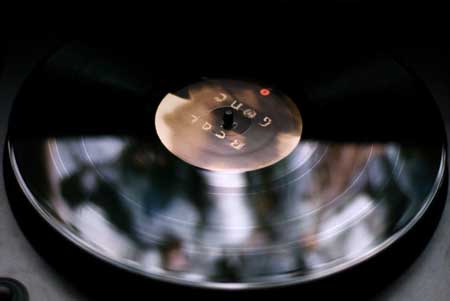
As a songwriter, everything I hear is an influence, whether good or bad, loved or hated; it is “influential.”
In order to understand what has truly inspired a song, one should first look for the obvious imitations. Like Prometheus of old, I steal fire from the gods, or rather, I mimic the mastery of Tom Waits. To see the influence Waits has had on me, one must focus on his unique writing style, his stunningly diverse rhyme schemes, and his all-encompassing subject matter. Waits has shown me, when writing a song, there is no fear, there are no limits.
Tom Waits’s style is a mesh of the beat poet, the eccentric satirist, and the dramatic orator; a mongrel storyteller, mixing Bob Dylan, Frank Zappa, and Freddie Mercury into a medley of vaudeville, jazz, show-tunes, blues, folk, and rock. With his arsenal of an unique, otherworldly voice, a long life of hardship and happiness, and over-the-top exaggerations of the extreme and normality, Waits brings a new and often overlooked depth to songwriting.
When dealing with rhyme schemes, it would appear Waits throws the rulebook out the window, into oncoming traffic, while sipping a Long Island Ice Tea, and adjusting the radio station (This imagery seems unnecessary, but fitting. Very paradoxical). While some of his songs follow a traditional ABAB/CDCD rhyme scheme (listen to “Jockey Full of Bourbon” and “Temptation”), other songs have alternative rhyming schemes, such as AABB/ CCDD (“Lowside of the Road” and “Ice Cream Man”) and ABCABC/ DEFGHF (“Grapefruit Moon”). An often used rhyme scheme by Waits is ABCB/ DEFE, a pattern that appears in many of his more well known songs (“The Piano Has Been Drinking,” “Chocolate Jesus,” “Big in Japan,” and “Swordfishtrombone”). So, is Tom Waits addicted to rhyming?
Hardly. Some of Waits’s songs are technically “unplotable” (yes, I made that word up). For example, “I’ll Be Gone” yields a rhyme scheme of nearly half the alphabet: ABCCD/ EEFFD/ GGHD/ IJKKD/ LMNO/ PPPD/ DDDD [The letter “D” represents the refrain, “And in the morning I’ll be gone”]. Rhythmically, it is staggered. Structurally, there is no rhyme, but the lines are so memorable, the beat so addictive, and the vibe so intense, one just flows with the song.
Besides being a mastermind and a wordsmith, Waits is a brilliant storyteller. Weaving tales that are beautiful and  treacherous, burlesque but refined, folksy yet urbane, he draws listeners into humanity’s dark-side, dragging mankind’s sins and shame under the examiner’s spotlight, showing every speck of the grit and grime. Not withstanding this dreariness, he still gives the listener moments of levity, rays of light among the rain clouds, a joke, or a fragment of uplifting philosophy. He shows love, sacrifice, beauty, and worship, all the while holding up a mirror, reflecting misery, greed, vanity, and blasphemy.
treacherous, burlesque but refined, folksy yet urbane, he draws listeners into humanity’s dark-side, dragging mankind’s sins and shame under the examiner’s spotlight, showing every speck of the grit and grime. Not withstanding this dreariness, he still gives the listener moments of levity, rays of light among the rain clouds, a joke, or a fragment of uplifting philosophy. He shows love, sacrifice, beauty, and worship, all the while holding up a mirror, reflecting misery, greed, vanity, and blasphemy.
When I imitate Tom Waits, it is not the style, the lyrics, or the subject, but rather, I mimic his trademark of elegant simplicity, telling a story, and pushing the limits. I strive to produce songs that translate my thoughts, emotions, and moods into a musical medium. Since this concept was introduced into my writing process, I no longer force a rhyme into a song, fret about proper meter, or worry over “acceptable” subject content.
Tom Waits has inspired me to abandon the fear of songwriting, the paralyzing restriction of rigid genre structures and unachievable commercial standards. Now, I write the songs I want to hear, of life Common and Uncommon, the simple and sweet, the dark and deep, the enigmatic and obscure. Besides, imitation is the finest form of flattery (unless it infringes on copyrights, then it’s just illegal).



